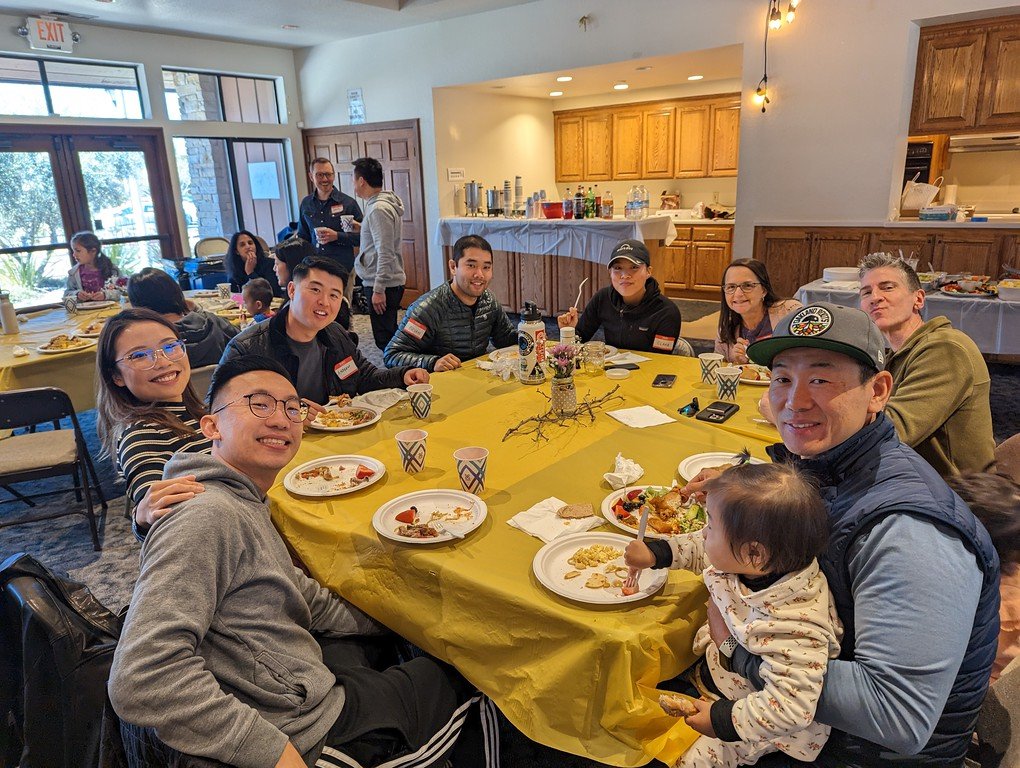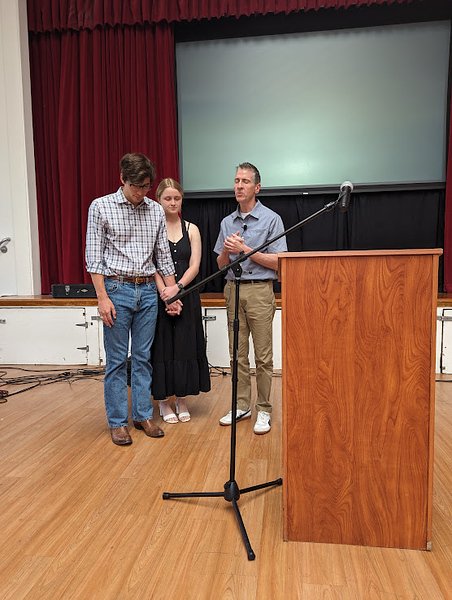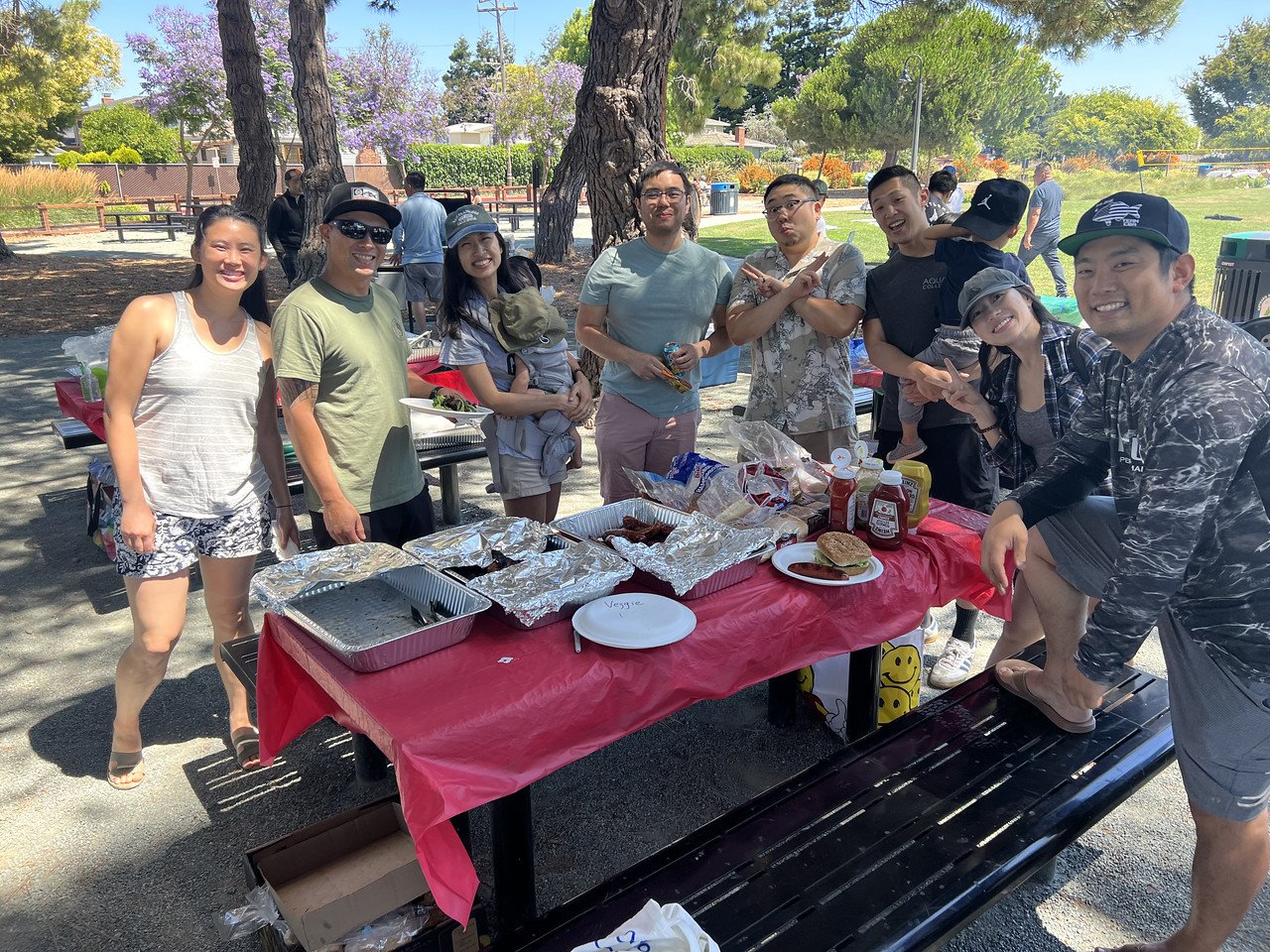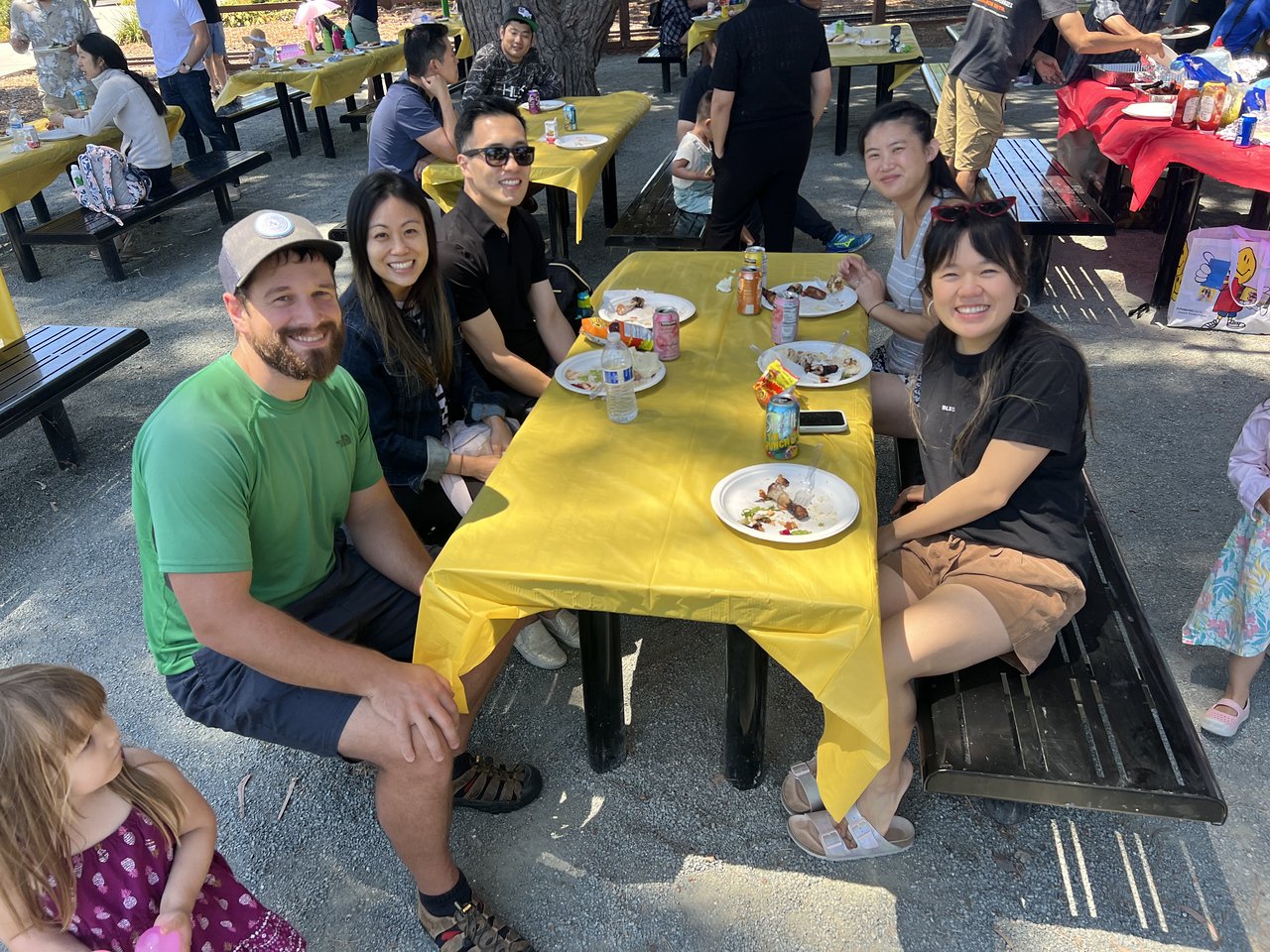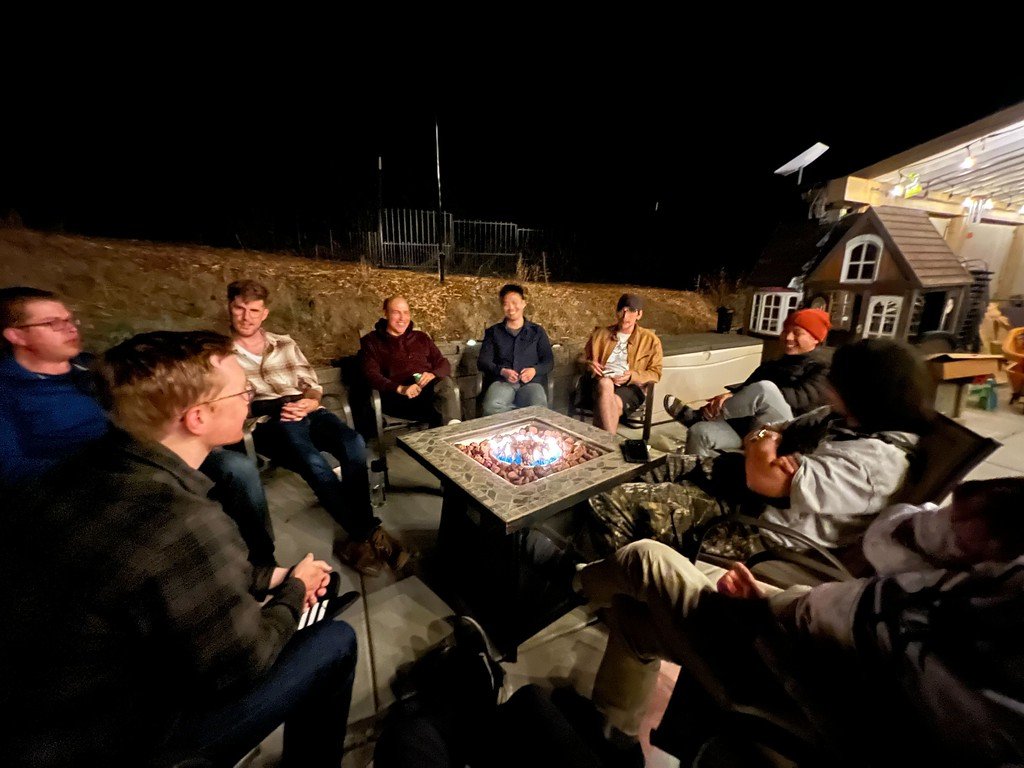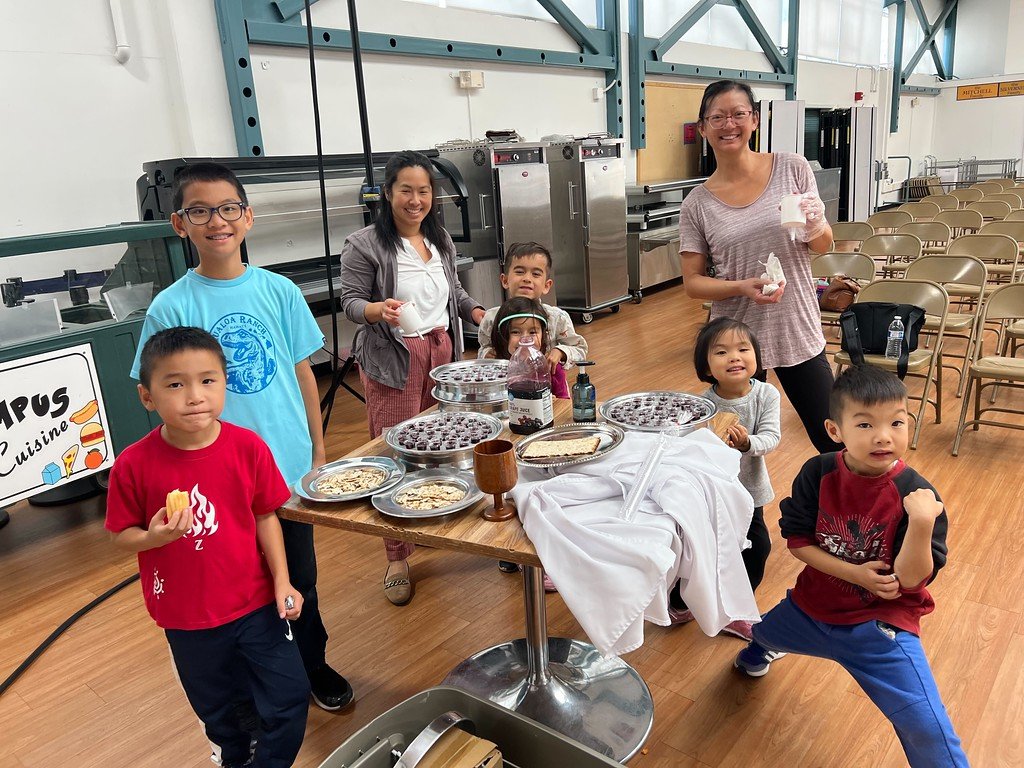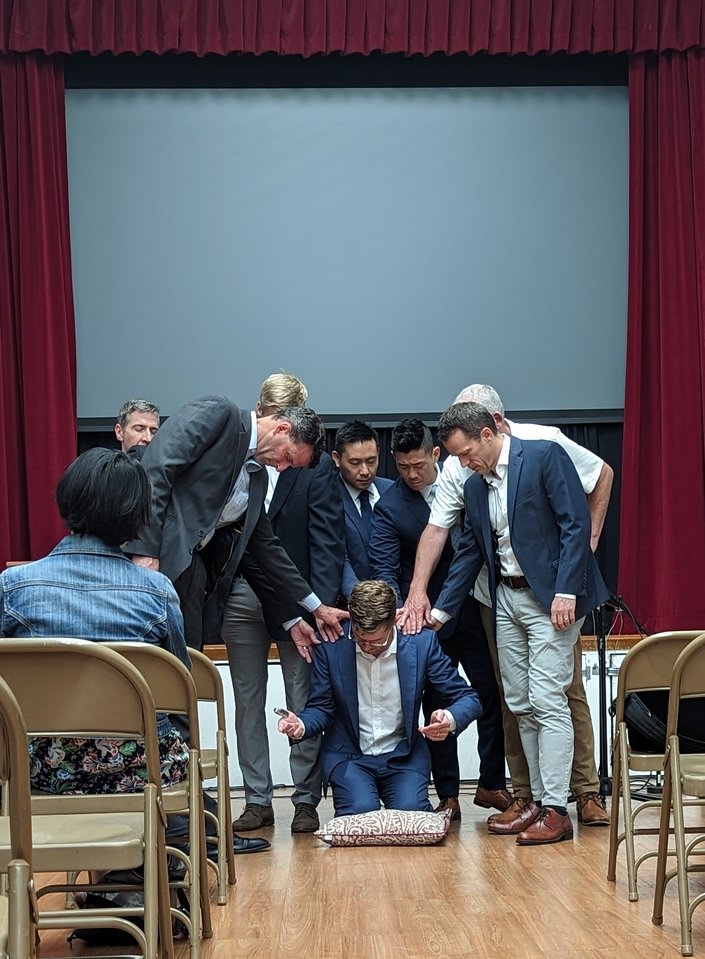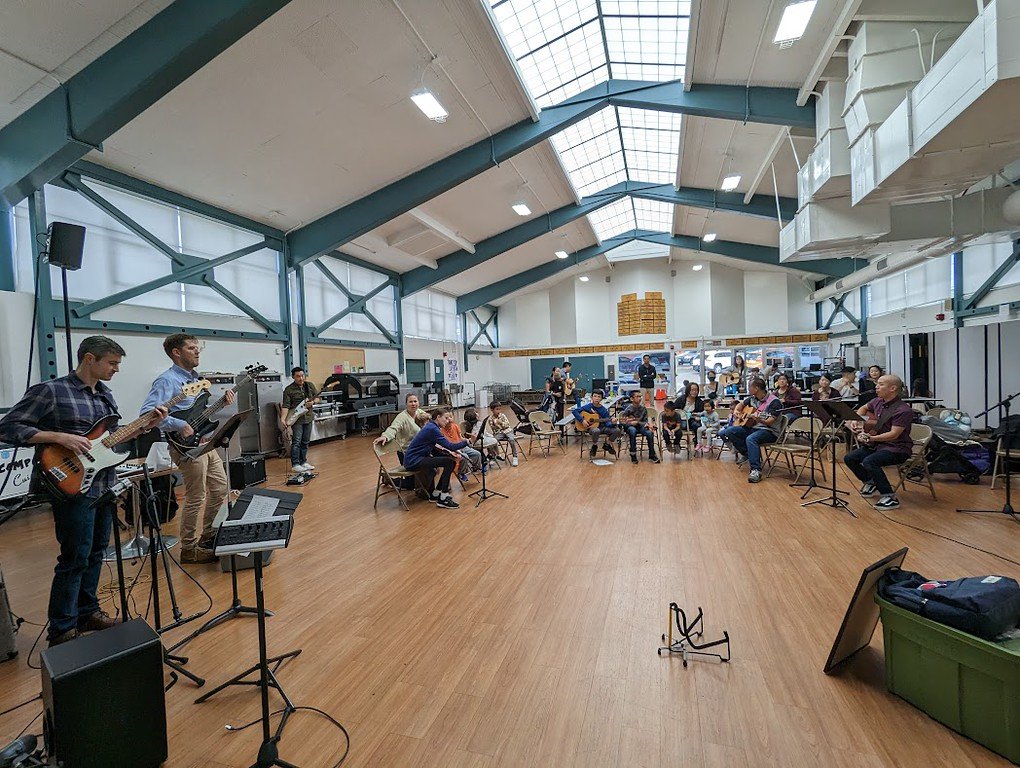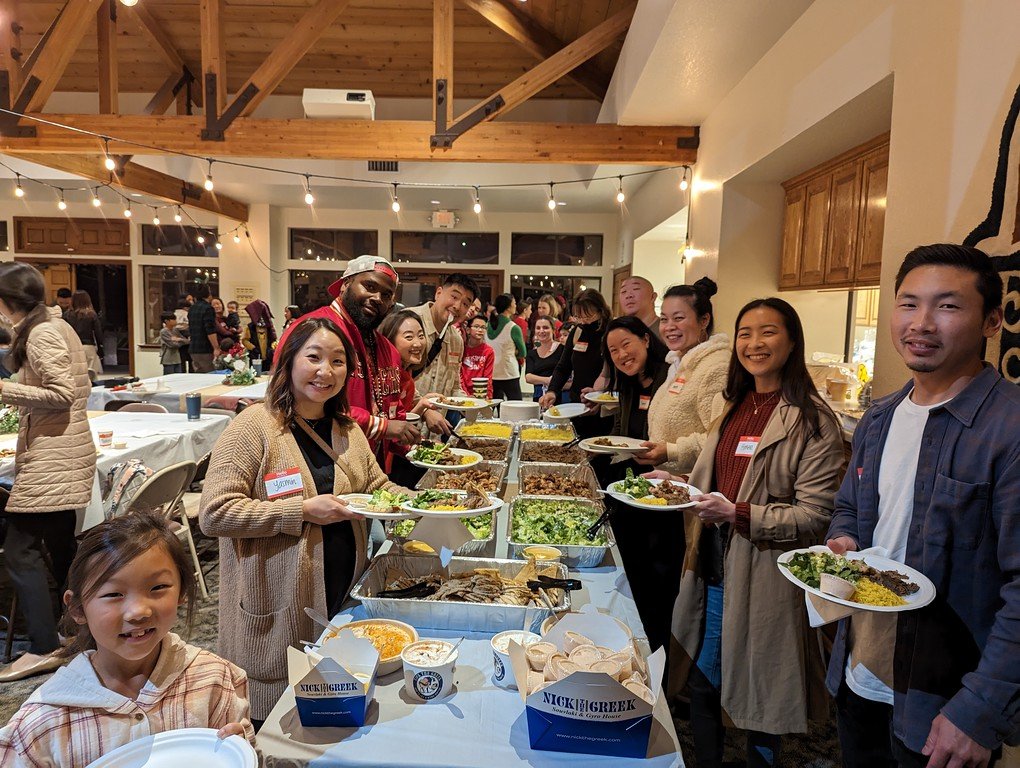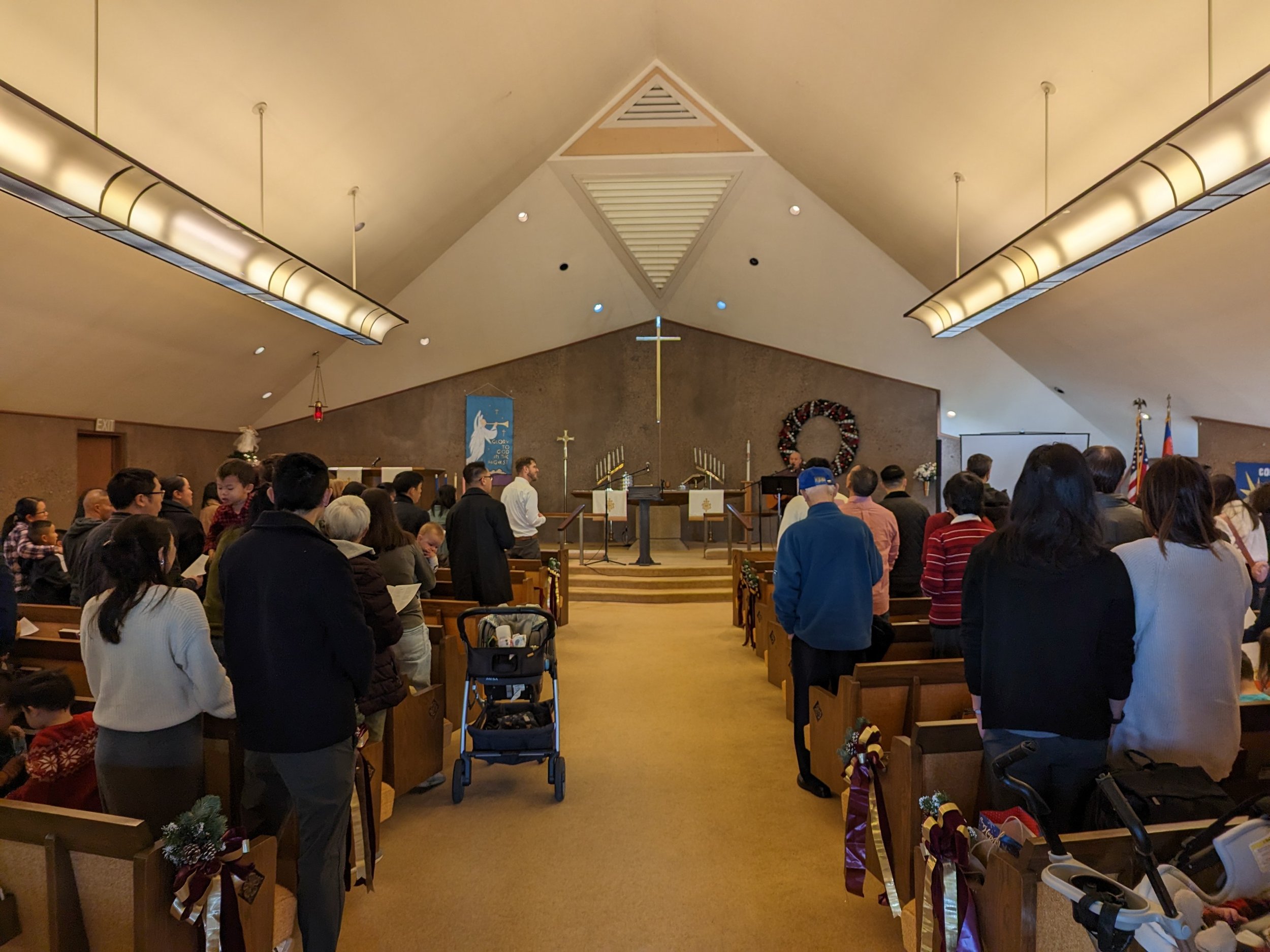When many of us think of kids and church, we think of wiggly, little toddlers that call our attention away from the worship song, the prayer, or the sermon. Parents of little ones think of the power struggle every Sunday morning from 10:30. You're just trying to manage without a meltdown until children's classes start. We often have a deeply rooted impulse that children, whether ours or others, are a distraction that keeps us from paying attention.
The Christian ethicists Stanley Hauerwas and Will Willimon, write "Interestingly, Jesus put a child in the center of his disciples, 'in the midst of them,' in order to help them pay attention . . . The child was a last-ditch effort by God to help the disciples pay attention to the odd nature of God's kingdom. Few acts of Jesus are more radical, countercultural, than his blessing of children" (Resident Aliens, 1989, p.96)
Listen to Jesus in Matthew 18:1-5: At that time the disciples came to Jesus and asked, “Who, then, is the greatest in the kingdom of heaven?” He called a little child to him, and placed the child among them. And he said: “Truly I tell you, unless you change and become like little children, you will never enter the kingdom of heaven. Therefore, whoever takes the lowly position of this child is the greatest in the kingdom of heaven. And whoever welcomes one such child in my name welcomes me.”
Few things reveal the heart of a church than their response to children.
Do they have the heart of Jesus?
Do children get the feeling that they're welcome?
Do they have a sense that the God their parents are worshiping cares about them?
Are they shuffled out of service with relief so that now the adults can do real church and their fun hangout time with friends can begin?
Are their classes haphazardly put together?
Is it glorified babysitting?
Do they see their parents hanging out at the back of the class chatting with their friends, rather than hearing the sermon?
All this forms our children's view of God and the gospel.
The Bay Area has long been a national leader in education. WalletHub has designated the San Jose area the #2 most educated area in the country and the San Francisco-Oakland-Berkeley as #4. Several of the school districts where Indelible Grace members live and send kids to school are some of the highest ranked in the state of California. Our culture values education, sometimes even idolizes education.
But what kind of education is it? It might create kids that perform well on standardized tests or have a better chance at admission into the UC's but most of that education is at best neutral to the Lordship of Christ or at worst outright antagonistic to Christian doctrine and ethics. We live in this intellectually-rich area where Christian claims are increasingly implausible and even viewed as immoral.
If we just wing our children's ministry, we are setting our kids up for confusion and a weak formation. The powers of cultural formation are undeniably in the hands of the tech and media companies. I was talking to an area pastor who was born in Africa but moved to the US in junior high years. He said one of the primary anti-Christian and secular influences is public and college education. I know many of us have kids in public schools. I'm not saying that's bad. Where our kids go to school must be a conscienced, prayerful, and discerning decision. But I am saying that we should not be naive about the power of that formation and we as a church have a primary mandate from the Lord to provide an alternate education that is rooted in a different kind of power, the Spirit of power, love, and self-control.
That's why we're starting this children's ministry study committee. We do not want to just put a band-aid on. We want to pray first of all. And we invite you to pray for us. But then we will do the hard work of biblical study. We want our vision of children's ministry to be rooted in God's Word. Then we want to apply wisdom as constructing a vision and plan for children's ministry we believe God is calling this particular church to put in place.
While this committee gets to work, the session approved some immediate changes for the summer.
We're going to end our regular children's programming this May for an alternative pilot program to be tested this summer. The pilot is going to be a children's worship service that will be concurrent with the sermon for our preschool and early grade school kids. Grades 2nd - 5th would remain in the service for the sermon with resources to help them process and attend to the sermon in an age appropriate way.
You might ask, why? Why not just wait?
There is lots of evidence that the crucial years of childhood development are the early years, especially for linguistic, cognitive, and emotional capacities. Preschool is actually a spiritually crucial and formative time - I'd be so bold to say even more so than grade school. One prominent Christian psychologist has described the first seven years of a child's life as "prime time" for spiritual formation.
At Indelible Grace Church, we believe our children are in covenant with the Lord from the beginning. John the Baptist was moved in the womb when his pregnant mother came near to Jesus in the womb of Mary.
One final note. Our confession begins with this beautiful question: What is the chief end of man? We could replace man with children.
What is the chief end of children? To glorify God and enjoy him forever.
Notice, it does not say to know Bible stories. Surely knowing the Bible is the primary way we know God. But you can know about God without ever glorifying and enjoying him. Our models of religious education too closely follow the Enlightenment paradigms of modern education that's more about information than formation, more about data than character, more about facts than love. I remember in my Sunday school, I could school all the rest of the kids because I had a good memory. I still remember this arrogant superiority I felt by knowing who was the youngest of Jacob's children. Paul says that if we understand all mysteries and all knowledge, but have not love, we are nothing.
That's why we want to do a test program in children's worship. We want to instruct our kids in how to worship and who we worship. But we also want to worship! We'll have songs to sing together. We'll work on some scripture memory verses together. We'll read Scripture and hear a sermon catered to children. And we'll pray together. One of my favorite experiences was a worship night at my former church. We had a corporate time of prayer but all the children were invited up to the front for their own prayer time. I had 5-7 kids ages 3-8 and we went around the circle and prayed for each other and for our city.
Who will be leading this children's worship? We want to have a rotation of teachers that are particularly gifted with leading kids and teaching. I'm actually super excited to be in rotation. Weeks that I'm not preaching here, I'll be helping lead there. I’m looking forward to pastoring our children.
Pastor Jesse

